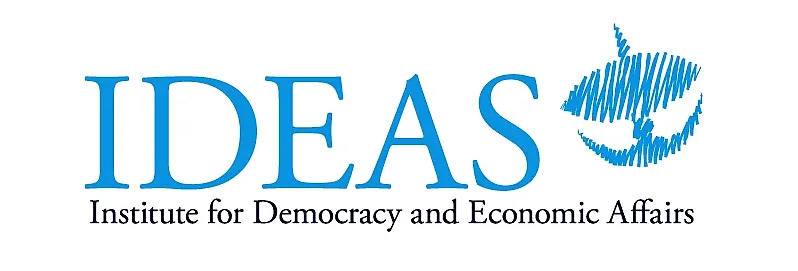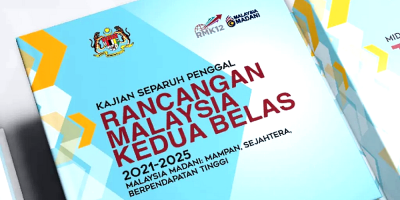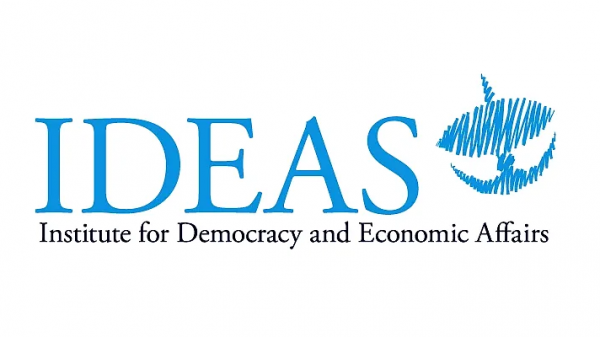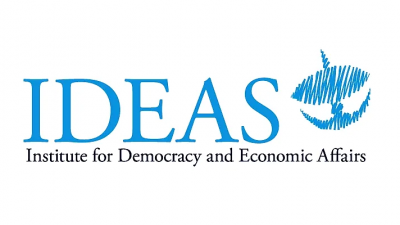
The Institute for Democracy and Economic Affairs (IDEAS) welcomes several measures announced in the re-tabled Budget 2023 announced on Friday to help raise Malaysia’s business profile, such as policies to facilitate investments, the growth of small, medium enterprises (SMEs), close the skills mismatch within the labor market, accelerate digitalization, and prioritize Environmental, Social and Governance (ESG) initiatives.
Additionally, IDEAS welcomes the government’s commitment towards improving access to education.
However, IDEAS also calls for more action in certain areas, among which to include developing a long-term plan on investment incentives, support for MSMEs in reskilling their workers, and deploying on social safety net development to ultimately include those in the informal sector in the long run.
Given the importance of fostering investments to Malaysia’s ongoing development, it is heartening to see that this budget seeks to further develop Malaysia’s investment climate.
However, more details are required on how the government intends to consolidate the country’s incentives landscape, which is currently very fragmented.
According to a research by BNM, there are currently some 100 types of incentives and more than 30 investment promotion agencies (IPAs) in the country. What is needed is a single coherent plan in attracting high-value investments into Malaysia which prevents wastage in resources.
It should be noted that this budget tasks multiple government agencies with fostering Malaysia’s investment ecosystem, including the Invest Malaysia Council, the National Committee on Investment (NCI), and PEMUDAH, which makes the implementation of a proper long-term plan to clearly define the roles and responsibilities of said agencies all the more important.
Focus must now be on the government’s review and update of the New Industrial Master Plan 2030, and how Malaysia’s different incentive frameworks and IPAs will factor into it.
IDEAS considers it timely that this budget prioritizes wealth distribution among different groups within the society.
IDEAS noted that the government will lower income tax for middle-class Malaysians by 2%. This temporary measure is vital to increase after-tax income for the middle income group in the wake of increasing inflationary pressures and higher interest rates.
In the absence of the GST, the government needs to examine other sources of income such as digital economy, among others, to broaden its income base in the medium term.
We also consider it timely that this budget allocates more support for MSMEs, given that they were the most affected by the COVID-19 pandemic.
We welcome initiatives such as the loan facility worth RM1.7 billion to help micro-entrepreneurs, women and youth as indicative of the government’s commitment towards economic inclusivity.
Additionally, in terms of upskilling and reskilling, IDEAS is supportive of the government’s plan to revamp technical and vocational education and training (TVET) in Malaysia through industry players partially or fully leading the operations of TVET institutions to ensure future skills training more accurately meets industry demand.
As highlighted in our recent research on labor upskilling, greater collaboration between skills institutions and industry is needed to help close the present skills mismatch in Malaysia’s labor market.
On empowering MSMEs to automate and digitize, allocations are given through the RM100 million allocation under the Small and Medium Enterprise (SME) Grant Scheme, or the RM1 billion of funding under Bank Negara Malaysia (BNM) to facilitate MSME digitalization.
However, government support through financing alone will not be able to equip entrepreneurs to fully leverage upon digital economy to become more competitive as training is equally important.
“Finally, it is good to see that the ESG principles are being incorporated into the budget, particularly when it comes to encouraging green business activities,”’ noted Dr. Juita Mohamad, Director of Research of IDEAS.
“This includes the RM2 billion provided by BNM to support green technology start-ups as well as to help SMEs implement low-carbon practices, the latter of which will raise the competitiveness of Malaysian SMEs in a time when international trade partners increasingly demand sustainable practices be implemented throughout the supply chain.
“The RM150 million provided by Khazanah Nasional to support environmentally-friendly projects in Malaysia, including the carbon market and reforestation efforts, will also be beneficial if allocated effectively.”
Additionally, the emphasis on expanding and strengthening the social protection system is necessary.
“We are relieved to see that Budget 2023 has not given in to pressure to further erode retirement savings after all the unrestricted withdrawals.
“The government is giving RM500 to EPF contributors with less than RM10k in Account 1. This is a good step, if a small one. But addressing the looming retirement crisis will need comprehensive measures, including investing in long-term social protection,” says Dr. Juita Mohamad.
“We also believe that existing efforts to expand social safety nets to self-employed workers must take place to cover those in the informal sector in the long run.”
Regarding the budget’s healthcare measures, Dr. Tricia Yeoh, CEO of IDEAS, acknowledged the government’s effort to address the issue of overcrowding in public hospitals by investing in infrastructure development as well as leveraging on private healthcare resources through Skim Perubatan Madani.
“Given that these are short- to medium-term measures, however, attention also needs to be given to developing long-term strategies for preventive healthcare.”
The government’s significant allocation of the budget for education is encouraging.
“Budget 2023 demonstrates the government’s commitment to developing infrastructure that will improve access to education, as well as plans to expand the Rancangan Makanan Tambahan program,” says Dr. Juita Mohamad.
“However, there is a lack of emphasis on measures to tackle the prevalent issue of learning loss, particularly among Malaysia’s vulnerable and underserved communities such as Orang Asli students and Persons with Disabilities.
“We believe that existing resources can be further leveraged to prioritize solutions to learning loss, as this is an issue that merits significant attention.”
ADVERTISEMENT
ADVERTISEMENT







































